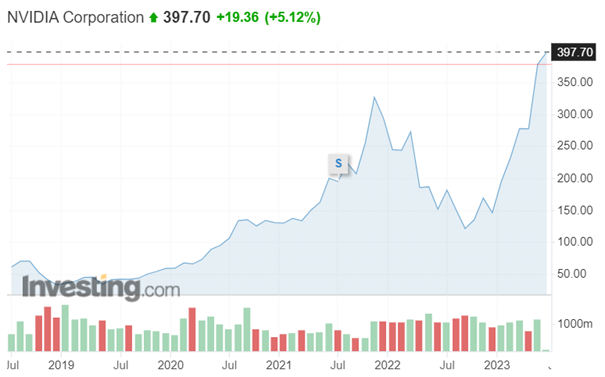I am not going to lie; it sounds like an amazing project. However, if I learned anything from the movies, it could also bite as back and turns against the humanity. Joke aside, some experts are warning that this might happen. So, back to the performance of stocks involved in AI. Reuters released an article, in which they summarised the growth of mentioned sector.
Article wrote that technology equity funds experienced their highest weekly inflows on record in the week leading up to Wednesday. This surge in investor interest in artificial intelligence (AI) resulted in 8.5 billion USD of inflows into tech stocks, while the overall market saw 14.8 billion USD of inflows, the largest weekly amount since February. The rally was fuelled, in part, by a significant rise in chipmaker Nvidia's shares, which propelled its market valuation above 1 trillion USD. BofA analysts described the current trend as a summer rip tide into tech and stocks and referred to it as an AI baby bubble. However, they remain bearish due to the potential impact of higher interest rates and tightening liquidity. The dominance of a few major companies, including Apple, Microsoft, Alphabet, Amazon, Nvidia, Meta, and Tesla, in the S&P 500's year-to-date return raises concerns about market health and the potential for volatility if investors decide to sell off these mega cap holdings.
Now, BofA could be right in their statement that all the growth can be just a bubble. Which would make sense, since AI is not that advanced, yet. It is still a new thing around. That is why I decided to focus on stocks of Nvidia, which were also particularly mentioned in the article.
Currently, the price of Nvidia is on the all-time high at around 400 USD per stock. * However, their main income source is from graphics card and chips, that’s why I decided to keep an eye on it and monitor the movement. It is somewhat of a risk to buy on all-time high price, so I will wait if there will be any correction and enter the market at that point.

Movement of Nvidia stocks in the last five years. (Source: Investing) *
* Past performance is no guarantee of future results.








